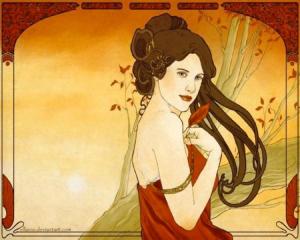| Author: | Frank Berkeley Smith | ISBN: | 9781465622716 |
| Publisher: | Library of Alexandria | Publication: | March 8, 2015 |
| Imprint: | Language: | English |
| Author: | Frank Berkeley Smith |
| ISBN: | 9781465622716 |
| Publisher: | Library of Alexandria |
| Publication: | March 8, 2015 |
| Imprint: | |
| Language: | English |
It was in fat Madame Fontaine's little café at Bar la Rose, that Norman village by the sea, that I announced my decision. It being market-day the café was noisy with peasants, and the crooked street without jammed with carts. Monsieur Torin, the butcher, opposite me, leaned back heavily from his glass of applejack and roared. Monsieur Pompanet, the blacksmith, at my elbow, put down his cup of black coffee delicately in its clean saucer and opened his honest gray eyes wide in amazement. Simultaneously Monsieur Jaclin, the mayor, in his freshly ironed blouse, who for want of room was squeezed next to Torin, choked out a wheezy "Bon Dieu!" and blew his nose in derision. "Pont du Sable—Bon Dieu!" exclaimed all three. "Pont du Sable—Bon Dieu!" "Cristi!" thundered Torin. "You say you are going to live in Pont du Sable? Hélas! It is not possible, my friend, you are in earnest!" "That lost hole of a village of sacré vagabonds," echoed Pompanet. "Why, the mud when the tide is out smells like the devil. It is unhealthy." "Père Bordier and I went there for ducks twenty years ago," added the mayor. "We were glad enough to get away before dark. B-r-r! It was lonely enough, that marsh, and that dirty little fishing-village no longer than your arm. Bah! It's a hole, just as Pompanet says." Torin leaned across the table and laid a heavy hand humanely on my shoulder. "Take my advice," said he, "don't give up that snug farm of yours here for a lost hole like Pont du Sable." "But the sea-shooting is open there three hundred and sixty-five days in the year," I protested, with enthusiasm. "I'm tired of tramping my legs off here for a few partridges a season. Besides, what I've been looking for I've found—a fine old abandoned house with a splendid old courtyard and a wild garden. I had the good luck to climb over a wall and discover it." "I know the place you mean," interrupted the mayor. "It was a post-tavern in the old days before the railroad ran there." "And later belonged to the estate of the Marquis de Lys," I added proudly. "Now it belongs to me." "What! You've bought it!" exclaimed Torin, half closing his veal-like eyes. "Yes," I confessed, "signed, sealed, and paid for." "And what the devil do you intend to do with that old stone pile now that you've got it?" sneered Jaclin. "Ah! You artists are queer fellows!" "Live in it, messieurs," I returned as happily as I could, as I dropped six sous for my glass into Madame Fontaine's open palm, and took my leave, for under the torrent of their protest I was beginning to feel I had been a fool to be carried away by my love of a gun and the picturesque. The marsh at Pont du Sable was an old friend of mine. So were the desert beach beyond the dunes, and the lost fishing-village—"no longer than your arm." I had tramped in wind and rain and the good sunlight over that great desert of pasty black clay at low tide. I had lain at high tide in a sand-pit at the edge of the open sea beyond the dunes, waiting for chance shots at curlew and snipe. I had known the bay at the first glimmer of dawn with a flight of silver plovers wheeling for a rush over my decoys. Dawn—the lazy, sparkling noon and the golden hours before the crisp, still twilight warned me it was high time to start back to Bar la Rose fourteen kilometres distant. All these had become enchanting memories. Thus going to Pont du Sable for a day's shooting became a weekly delight, then a biweekly fascination, then an incorrigible triweekly habit. There was no alternative left me now but to live there. The charm of that wild bay and its lost village had gotten under my skin. And thus it happened that I deserted my farm and friends at Bar la Rose, and with my goods and chattels boarded the toy train one spring morning, bound for my abandoned house, away from sufficient-unto-itself Bar la Rose and its pigheaded inhabitants, the butcher, the blacksmith, and the mayor.
It was in fat Madame Fontaine's little café at Bar la Rose, that Norman village by the sea, that I announced my decision. It being market-day the café was noisy with peasants, and the crooked street without jammed with carts. Monsieur Torin, the butcher, opposite me, leaned back heavily from his glass of applejack and roared. Monsieur Pompanet, the blacksmith, at my elbow, put down his cup of black coffee delicately in its clean saucer and opened his honest gray eyes wide in amazement. Simultaneously Monsieur Jaclin, the mayor, in his freshly ironed blouse, who for want of room was squeezed next to Torin, choked out a wheezy "Bon Dieu!" and blew his nose in derision. "Pont du Sable—Bon Dieu!" exclaimed all three. "Pont du Sable—Bon Dieu!" "Cristi!" thundered Torin. "You say you are going to live in Pont du Sable? Hélas! It is not possible, my friend, you are in earnest!" "That lost hole of a village of sacré vagabonds," echoed Pompanet. "Why, the mud when the tide is out smells like the devil. It is unhealthy." "Père Bordier and I went there for ducks twenty years ago," added the mayor. "We were glad enough to get away before dark. B-r-r! It was lonely enough, that marsh, and that dirty little fishing-village no longer than your arm. Bah! It's a hole, just as Pompanet says." Torin leaned across the table and laid a heavy hand humanely on my shoulder. "Take my advice," said he, "don't give up that snug farm of yours here for a lost hole like Pont du Sable." "But the sea-shooting is open there three hundred and sixty-five days in the year," I protested, with enthusiasm. "I'm tired of tramping my legs off here for a few partridges a season. Besides, what I've been looking for I've found—a fine old abandoned house with a splendid old courtyard and a wild garden. I had the good luck to climb over a wall and discover it." "I know the place you mean," interrupted the mayor. "It was a post-tavern in the old days before the railroad ran there." "And later belonged to the estate of the Marquis de Lys," I added proudly. "Now it belongs to me." "What! You've bought it!" exclaimed Torin, half closing his veal-like eyes. "Yes," I confessed, "signed, sealed, and paid for." "And what the devil do you intend to do with that old stone pile now that you've got it?" sneered Jaclin. "Ah! You artists are queer fellows!" "Live in it, messieurs," I returned as happily as I could, as I dropped six sous for my glass into Madame Fontaine's open palm, and took my leave, for under the torrent of their protest I was beginning to feel I had been a fool to be carried away by my love of a gun and the picturesque. The marsh at Pont du Sable was an old friend of mine. So were the desert beach beyond the dunes, and the lost fishing-village—"no longer than your arm." I had tramped in wind and rain and the good sunlight over that great desert of pasty black clay at low tide. I had lain at high tide in a sand-pit at the edge of the open sea beyond the dunes, waiting for chance shots at curlew and snipe. I had known the bay at the first glimmer of dawn with a flight of silver plovers wheeling for a rush over my decoys. Dawn—the lazy, sparkling noon and the golden hours before the crisp, still twilight warned me it was high time to start back to Bar la Rose fourteen kilometres distant. All these had become enchanting memories. Thus going to Pont du Sable for a day's shooting became a weekly delight, then a biweekly fascination, then an incorrigible triweekly habit. There was no alternative left me now but to live there. The charm of that wild bay and its lost village had gotten under my skin. And thus it happened that I deserted my farm and friends at Bar la Rose, and with my goods and chattels boarded the toy train one spring morning, bound for my abandoned house, away from sufficient-unto-itself Bar la Rose and its pigheaded inhabitants, the butcher, the blacksmith, and the mayor.















